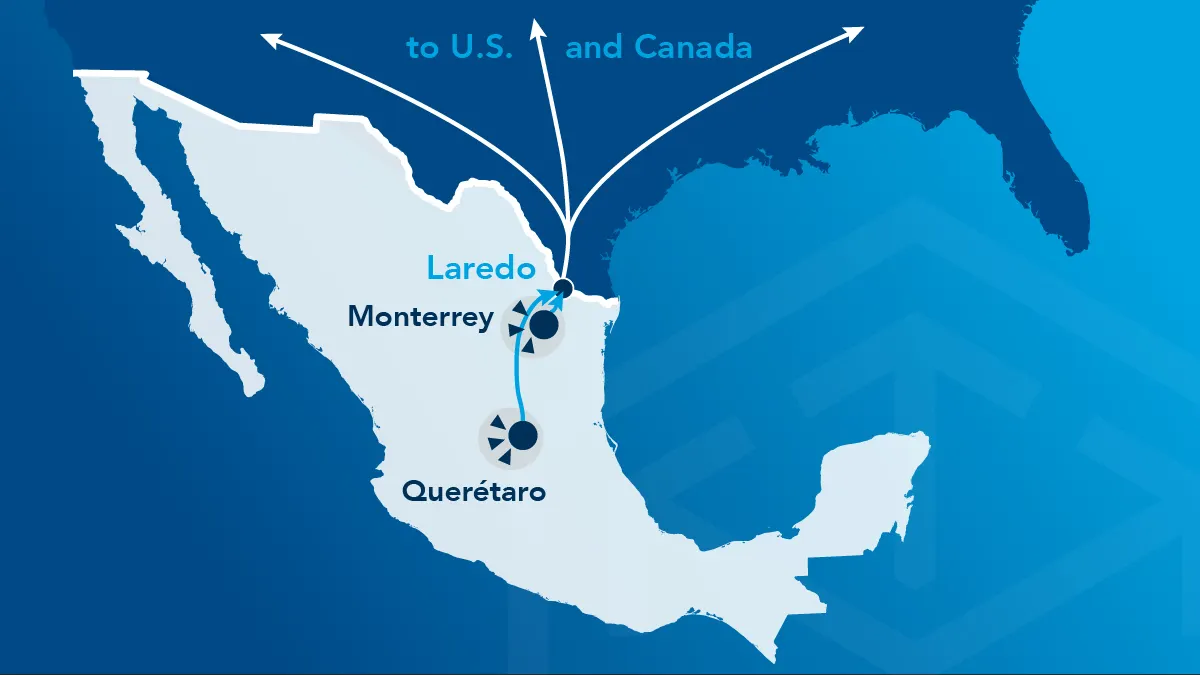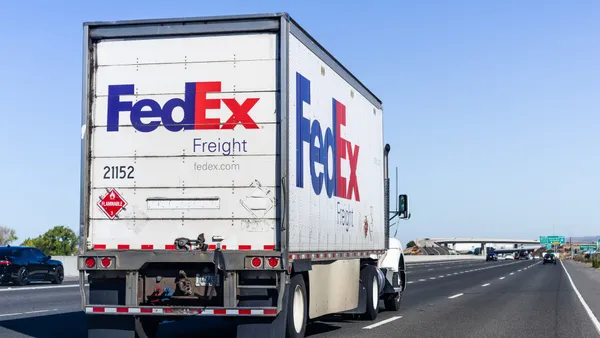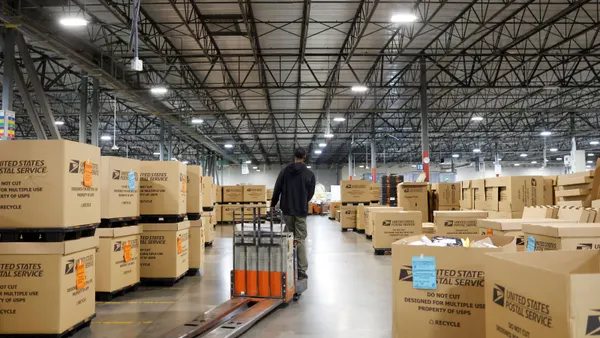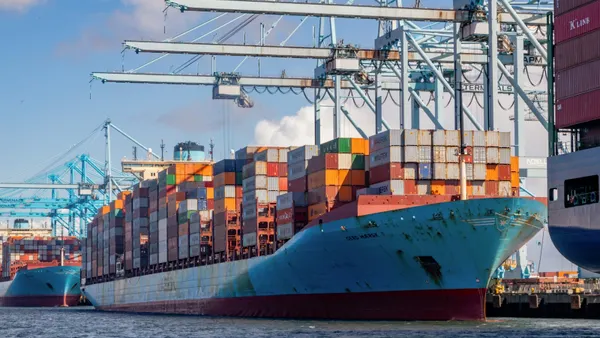Dive Brief:
- C.H. Robinson Worldwide launched a freight consolidation service to overcome inefficiencies in cross-border supply chains, according to a Sept. 11 press release.
- The third-party logistics provider said trucks crossing from Mexico into the U.S. are underutilized, sometimes carrying just a single pallet. Mexico law requires all freight in one trailer to be cleared by the same customs broker, making it harder to consolidate LTL freight.
- Through freight consolidation, the company aims to address the LTL hurdles in Mexico by filling trailers and reducing miles traveled for trucks.
Dive Insight:
C.H. Robinson’s new cross-border service aims to minimize truck travel time and miles, while simultaneously maximizing trailer utilization.
A shipper’s freight from Mexico tends to be from various suppliers that ship to them using different carriers, customs brokers and technology.
“Say you’re a company that assembles vehicle seats in the United States, and you’re importing foam, fabric, a wiring harness, a motor and switches from five different suppliers in Mexico,” Jay Cornmesser, VP for Mexico cross-border services, said in the release. The imported items might cross the border on five different trucks that require five different transfer carriers where freight might be consolidated for delivery to a warehouse or plant.
“You’re unnecessarily paying for too many trucks and unnecessarily paying for unused space on each truck,” Cornmesser said.
With the new service, C.H. Robinson consolidates freight at its center in Mexico. Its proprietary Optimizer technology uses real-time data to determine the mode, route, carrier and day to move freight. Products can move across the border on one truck.
The 3PL’s new service also aims to increase visibility for shippers. Freight consolidation can save shippers up to 40% in costs and give them visibility into their freight up to 48 hours before it crosses the border, per the release.
If a shipper needs its freight expedited, C.H. Robinson can “pull freight from different locations closer to the receiver, expedite freight that’s further along in transit or at the very least obtain a more competitive rate for an expedite from our consolidation center,” Cornmesser said.
Further, the cross-border service leverages bonded warehousing to mitigate tariffs.
“We can move freight in bond, meaning it can enter the United States through a bonded warehouse to defer U.S. tariffs for better cash flow or even eliminate tariffs if the freight is passing through to Canada,” said Ben Bidwell, senior director for customs at C.H. Robinson.
Auto parts and components are top commodities that flow across the Mexico border, making C.H. Robinson’s service attractive for automotive supply chains subject to the 50% tariffs on items containing aluminum or steel, he added.















